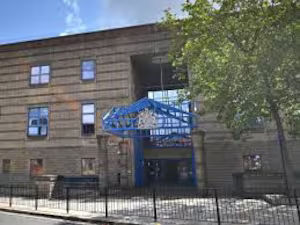Economic crash 'could bring crimewave' to West Midlands
The economic disaster caused by coronavirus could leave the West Midlands facing a "crimewave" as jobless young people are lured into crime, a police chief has said.

Deputy Police and Crime Commissioner Waheed Saleem said the economic climate would have an "inevitable impact on crime" as he called for an urgent plan from the Government "to stop an economic crisis becoming a crime wave".
Mr Saleem stressed that without jobs guarantees the UK risked "going back to the 1980s" and that rising unemployment would only put more pressure on the police.
Thousands have jobs have been lost as a result of the pandemic, which has forced the country into recession, and there are concerns about what will happen to young people who don't have opportunities to work.
There are fears it could result in school leavers and other young people turning to crime instead.
Mr Saleem told the latest meeting of West Midlands Police's Strategic Policing and Crime Board: "The economic climate is going to have an inevitable impact on crime. Loss of industry and jobs will unfortunately mean that more young people are lured into crime.
"The Government needs a proper targeted jobs plan to stop an economic crisis becoming a crime wave.
"Crime is already nearing a return to pre-lockdown levels and without proper job guarantees we risk going back to the 1980s. We are facing a ticking timebomb of youth unemployment."
Gang violence surged as lockdown restrictions were eased in May, with a spate of shootings and knife attacks across the West Midlands.
Mr Saleem added: "I am also worried that job losses are going to have a huge impact on mental health, which is already a large part of policing demand - that is set to grow further."
It comes after Wolverhampton MP Pat McFadden warned the UK was facing "a moment of danger" after suffering the largest drop in employment for over a decade.
He urged minister to step up efforts to protect jobs after it emerged the number of people in work fell by 220,000 between April and June.





